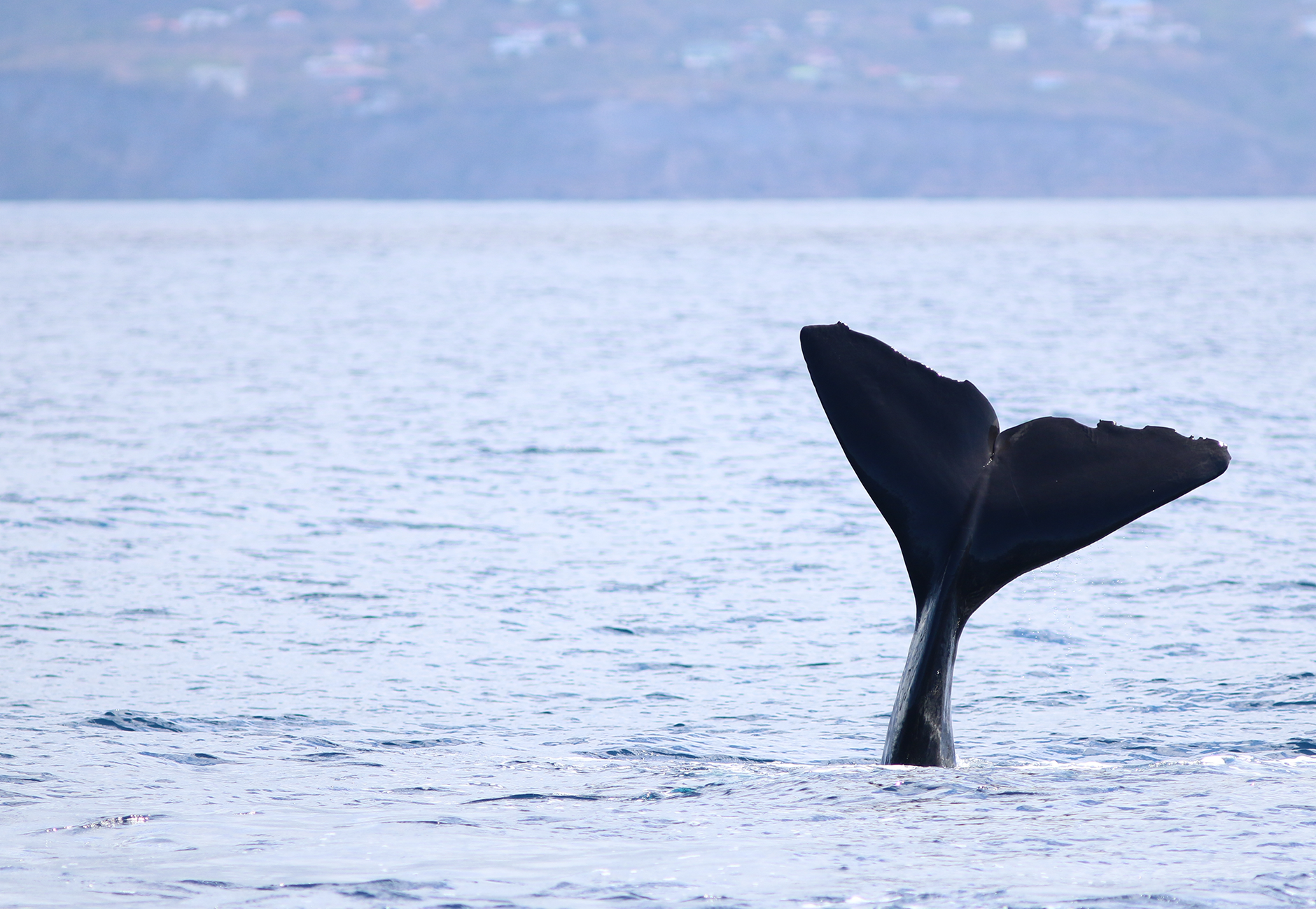



Conserve Home
Conserve
Conserve Home
Conserve
To promote locally motivated conservation to ensure that marine mammals born today can raise the next generation in a healthy ocean
On an evolutionary timeline, sperm whales are among the oldest of the toothed whales. They have lived in the oceans for longer than modern humans have walked upright. Over a modern timeline, these families we have been working with over the last ten years have known each other for far longer just by living in the same neighborhood. We know that these families have lived in the area for decades, and likely even centuries. Their ocean nation has lived parallel to ours, mostly unnoticed, for generations and the weight of their shared history should greatly affect our actions.
Since 2005, we have worked closely with stakeholders on the island and have a good working relationship with the government agencies, local whale watch operations, and the public. We have championed the movement for regulation of both the commercial-swim-with and the traditional whalewatch tours in Dominica. We are working with the government currently to implement a marine protected area designed to managed human interactions with whales, build sustainable tourism, separate ships and whales, and protect the sperm whale families off Dominica.

Conservation Issues
Conservation Issues
Conservation Issues
Conservation Issues
Sperm Whale Population Status
Population structure for sperm whales on an oceanic scale is largely unknown. Genetic, photographic, and molecular studies suggest that the female units largely remain in their natal waters, with males moving around the oceans and perhaps around the globe. There appears to be differences in social, vocal, and diving behaviour between regions in the North Atlantic and given recent United Nations resolutions, it suggests that management should be made on the regional scale rather than across broad arbitrary oceanic “stocks” as they are currently.
The community using the waters in the eastern Caribbean has been estimated to be fewer than 500 whales. While globally it is estimated that there are around 840,000 sperm whales in the oceans today, this is down from nearly 2 Million prior to ancient and modern mechanized whaling which only stopped in the late 1980’s, not so long ago.
Conservation Issues
While whaling of sperm whales has largely stopped, humans are still the sources of the major threats to sperm whales. Chemical and heavy metals are being found in the tissues of animals from around the world, including those as far away as Antarctica. Animals can become entangled in fishing gear including longline, gill nets, and FADs; and ship strikes are a concern for sperm whales, particularly in island areas like the Caribbean where everything is imported and fast ferries transit between islands. But ocean noise is increasingly being seen as a major threat to cetaceans around the world.
Sperm whales are listed or protected under a number of legal frameworks:
The IUCN Red List of Threatened Species lists the sperm whale as being "Vulnerable"
The United States Endangered Species Act list sperm whales as "Endangered"
Listed under Appendix I and Appendix II of the Convention on the Conservation of Migratory Species of Wild Animals (CMS) as sperm whales have been categorized as being in danger of extinction throughout all or a significant proportion of their range (Appendix I) and they have an unfavourable conservation status or would benefit significantly from international co-operation organised by tailored agreements (Appendix II)
Sperm whales are covered by the Specially Protected Areas and Wildlife (SPAW) Protocols in the Wider Caribbean.
Currently, we are working with the Government of Dominica to create legal protections for sperm whales in their waters.
We have estimated that the current community of sperm whales in the eastern Caribbean is decreasing at around 3% per year.
Its likely that most of that mortality is human caused.

Flukebook
Flukebook
Flukebook
Flukebook
Contribute to Flukebook.org
We are part of building a new type of social network. One that connects people and whales.
Flukebook will allow whale watchers, citizen scientists and just about anyone who is passionate about whales to be able to track individual whales you've met; and share your encounters, photos, stories and videos on that whale’s page. Just like any other social media site.
Flukebook also has powerful data management, pioneering photo matching algorithms and analysis tools for researchers and conservation groups to build a framework for studies over the gigantic geographic scales whales use every day.
You can help by contributing your fluke pictures!
Meet The Whale Families
Our local printable flukebook details the most common sperm whales families, some background information about them and our project, and features full colour pictures of up-to-date flukes for each individual. Its great to have if you are planning a visit to see the whales in Dominica.


